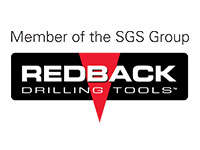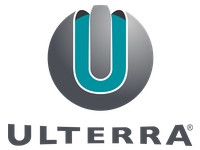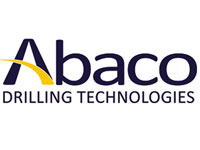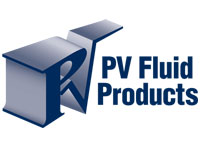AADE Houston FMG/IETG Joint Meeting
When: May 13, 2021 @ 1:00 PM to 3:00 PM
Scroll down for registration link.
Location: Virtual Meeting via Zoom
Cost: Member: Free to attend / Non-member: $15
Non-members have the option to join as a member or renew your registration at the time of registering, then the meeting cost will be free as well as all subsequent DTC meetings for 2021.
Program Topic: “Automation and Clear Brine Fluids"
SPEAKERS
1. Alan Mclauchlan (Halliburton)
Presenting – “All Electric Benefits from CAPEX to OPEX”
In today’s environment, operators are looking for ways to reduce spend on CAPEX and OPEX while still having the capability to enhance equipment performance over the life of the well. Typically cost reductions result in the use of standard technology, which can often result in lost production or less reliable equipment versus more advanced completion systems.
All-Electric Completions enable project cost reductions by removing costly hydraulic systems from the subsea production systems and host platforms. Studies have shown that projects deemed previously too uneconomical to proceed with the use of conventional systems can now be pursued thanks to higher specification technologies, which enable enhanced monitoring and control of the reservoir.
As technological advances in subsurface technologies have progressed, operators now have the capability to capture parameters that were previously a challenge to measure with conventional systems. All-Electric Completions are enabling faster and more informed decisions, and when combined as a total system can have a significant impact on operating costs while maintaining optimum well performance and longevity.
Alan Mclauchlan, with 25 years industry experience across the oil and gas sector, Alan has a proven track record in the development and introduction of new technology and driving commercially successful safe, quality orientated environments. Responsibilities have included; country management, business development, technology development and introduction, development of strategic partnerships and Joint Ventures, strategy development and project leadership. Alan has been with Halliburton since 1997 and is currently the Principal Product Champion for All Electric Completions within Halliburton Advanced Completions group.
2. Katherine Price Hoelscher and Ethan Peterson (MI SWACO)
Co-presentations – ”Diagnosing Operational Health Through Automated Drilling Fluid Sampling and Digital Technology”
Our industry is witnessing the early adoption of the fourth industrial revolution of digital technology. Changes within our industry demand a quick response to increase our already high level of planning accuracy and operational performance. Autonomous digital systems hold the key in reducing overall risk while increasing the benefits from expedited and more detailed analysis. A key benefit is liberating our subject matter experts from repetitive tasks, allowing them to focus on solutions for drilling effectively by using automation and effective data communication to a single database. Data, like oil, provides many benefits when stored in its crude form. Before useful data is accumulated, it must be acquired using fit for purpose methods and instrumentation to ensure accuracy as well as optimal frequency. Inaccurate data will only lead to inaccurate conclusions, and isolated data points are meaningless without surrounding data to offer context. The biggest challenges we face involves bringing data from so many sources together in a repository that has the proper context required to transform the data into useful information. This practice of incorporating accurate, structured and contextual data in a secure, customer empowered cloud environment is the clear future of the petroleum industry.
Katherine Price Hoelscher is a Product Champion at MI SWACO working on new technology development for fluids automation, lost circulation, and digitalization products. She has worked primarily in new product development of drilling fluid systems. Katherine’s 10-year tenure has allowed her to collaborate with multiple segments, including wireline, well services, joint ventures and environmental testing. She received her doctorate in chemistry from Rice University and held a postdoctoral position at Imperial College London; both focused on nanotechnology.
Ethan Peterson is a Product Champion at MI SWACO working on new technology for drilling fluids and cementing to develop digital innovations that supports the core fluids market while pioneering new industry solutions. He joined M-I SWACO in early 2011, gaining understanding of solids control, pressure control and experience in a variety of drilling fluids systems and circumstances. Experience in a variety of drilling situations lead to opportunities as a Project Engineer, technical service, sales & commercial and management positions, prior to beginning his current role in early 2020. He joined the digital program in 2020. He received a BS in Forensic Science and Chemistry form Weber State University in 2007.
3. Temi Okesanya (NewPark)
Presenting – “Optimizing the Drilling Efficiency and Corrosion Control of Clear Brine Drilling Fluids through the Automated Measurements of Fluids’ Properties”
Proficient monitoring of drilling fluids’ properties is vital to the success of any drilling project. While this responsibility has been manually conducted over the years by the fluid engineer, there has always been a concern of discrepancies, human-induced errors, and the absence of critical data in unmeasured intervals that can negatively affect drilling operations. These concerns are even aggravated in the case of clear brine drilling fluids due to their corrosion potential and dewatering challenges.
This pragmatic study presents results and lessons learned from field case studies in North America (the USA and Canada) where a successful approach was adopted to optimize the drilling efficiency of brine drilling fluids through the live monitoring of the fluid’s properties. Various probes were used for the automated and real-time measurements of brine fluid properties and produced measured data that can be viewed remotely. Rate of Penetration (ROP) data was obtained from an Electronic Drilling Recorder (EDR) software used in the rigs. Weight loss tests on drill pipe corrosion coupons were used to determine field corrosion rates. An effective solids control system was used to remove solids when measured solids content rose above the pre-determined threshold value.
Surprisingly, it was discovered that a low concentration of drill solids (even as little as 1% v/v) in the brine fluid system can impact corrosion rates greater than some chemical additives. Field results also showed that a decrease in solids content engendered an increase in the Rate of Penetration (ROP). There was a substantial increase in ROP (Over 57.5%) due to effective solids control and monitoring thereby making live and automated monitoring of brine drilling fluids’ properties a priority for drilling optimization.
By leveraging automated data capture and analytics, this digital approach has provided a very potent framework for efficient decision-making and drilling optimization. This approach has provided the necessary foundation for using a wider variety of brines and produced water as premium drilling fluids with similar confidence to an oil-based mud.
Temi is currently a Project Engineer with Newpark Canada Inc. He has a master’s degree in petroleum engineering from the University of Alberta, Canada. Temi has a reliable track record of managing and providing solutions to complex drilling and data science projects. Recipient of multiple professional and academic awards including a grant from the Natural Sciences and Engineering Council of Canada (NSERC) in 2019. He is also a published author of various technical papers in reputable journals. Previously a drilling engineering intern with Addax Petroleum (a subsidiary of Sinopec); Temi possesses an astute array of technical knowledge in drilling fluids engineering, corrosion management and data analytics.
Reservations are required! The Zoom meeting link will be emailed to those registered within 24 hours of the meeting date.
Deadline for reservations is Tuesday, May 11.
Search AADE for PDF Files
© 2024 American Association of Drilling Engineers
Follow AADE:
This website uses cookies. By continuing to browse this website without changing your web-browser cookie settings, you are agreeing to our use of cookies. To learn more read our privacy policy.
Ok







